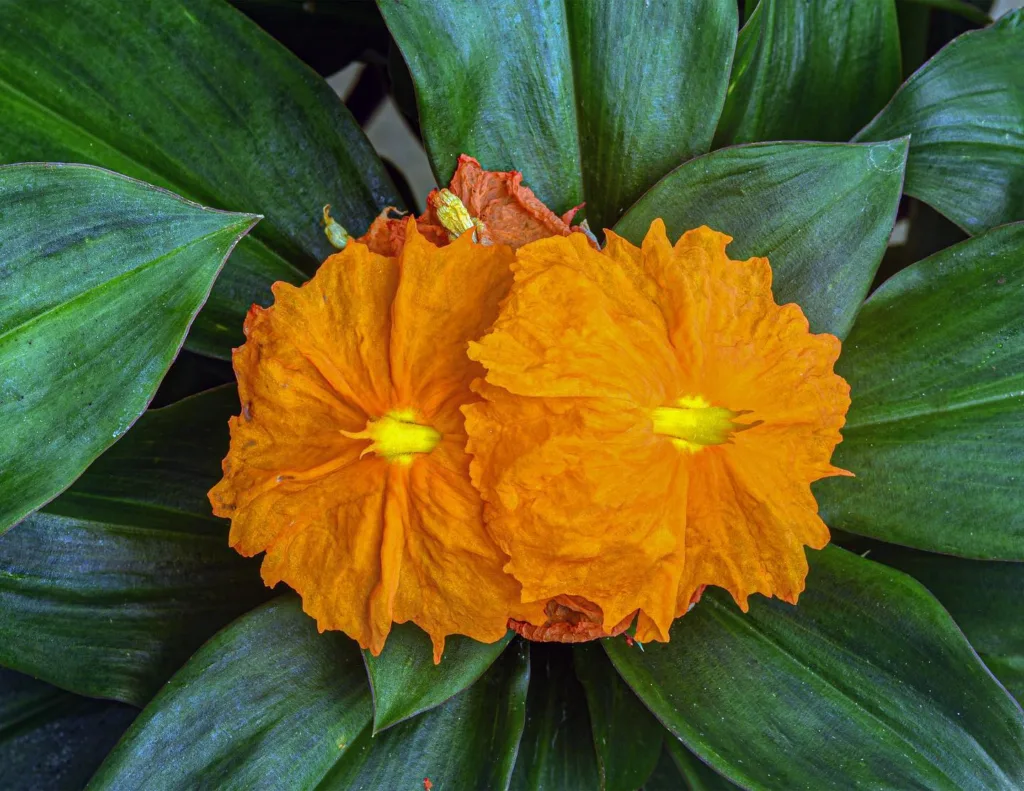What is Fir Wood?
Fir wood is a popular choice in construction and woodworking. It’s a softwood, meaning it comes from a coniferous tree, which is evergreen and doesn’t lose its leaves seasonally. Fir wood is known for its strength, straight grain, and ease of working with, making it a favorite for framing, flooring, and even furniture.
Is Fir a Hardwood?
No, Fir is not a hardwood. It is classified as a softwood because it comes from a coniferous tree. The distinction between hardwoods and softwoods isn’t about the wood’s actual hardness but rather about the type of tree it comes from. Hardwoods come from broad-leaved trees, while softwoods, like Fir, come from needle-bearing or coniferous trees.
What Do Fir Trees Look Like?
Fir trees are majestic conifers with a pyramid-like shape. They can grow quite tall, with some species reaching over 200 feet. The branches are arranged in whorls around the trunk, and the needles are soft, flat, and usually have a notch at the tip. The bark is smooth and gray when young, becoming thicker and more furrowed as the tree ages.
Is Fir Good Firewood?
Fir is decent firewood, but it’s not the best. It burns quickly and produces a moderate amount of heat, but it also has a tendency to spark and pop. If you’re looking for firewood that produces long-lasting heat, you might want to consider hardwoods like Oak or Hickory instead.
Is Fir Good for Outdoor Use?
Fir wood can be used outdoors, but it’s not the most durable option without proper treatment. It has moderate natural resistance to decay and insects but benefits greatly from sealing or painting to extend its lifespan. Fir is often used in outdoor furniture, decks, and siding when treated properly.
Is Fir Wood Weather Resistant?
Fir wood has some natural resistance to weather, but it’s not as weather-resistant as other woods like Cedar or Redwood. To make it more suitable for outdoor use, it’s essential to treat Fir wood with a sealant or paint to protect it from moisture, UV rays, and temperature fluctuations.
Is Fir Wood Water Resistant?
Fir wood is not naturally water-resistant. It can absorb water, which may lead to swelling, warping, or rotting over time if not properly treated. Applying a water-resistant sealant or paint can significantly improve its ability to withstand moisture.
Are Fir Cones Poisonous to Dogs?
Fir cones are generally not considered toxic to dogs, but they can pose a choking hazard or cause digestive issues if ingested. It’s best to keep them out of reach to prevent any potential problems.
Do Fir Trees Have Cones?
Yes, Fir trees produce cones, which are typically upright and grow on the upper branches. Unlike other conifers, Fir cones disintegrate on the tree, releasing seeds that are spread by the wind.
Is Fir Wood Good for Garden Beds?
Fir wood can be used for garden beds, but it’s not the most durable choice. Since Fir is not naturally rot-resistant, it will break down faster than more rot-resistant woods like Cedar or Redwood. However, it’s an affordable option if you’re looking for a budget-friendly material for garden beds.
What is Fir Wood Used For?
Fir wood is versatile and used in a variety of applications, from construction to crafting. It’s commonly used for framing, flooring, furniture, and even in the making of musical instruments. Fir’s straight grain and ease of working with make it a favorite for these applications.
Can Goats Eat Fir Trees?
Yes, goats can eat Fir trees, particularly the needles. In small amounts, Fir needles can be a part of their diet. However, it’s important not to let goats overconsume Fir needles, as large quantities can lead to digestive issues.
Fir vs Pine
When comparing Fir to Pine, there are some key differences. Pine is typically softer and easier to work with, but it’s also more prone to denting and scratching. Fir is slightly harder and more durable, making it better suited for applications where strength is needed. Both are commonly used in construction, but Fir tends to be preferred for structural elements.
Fir vs Spruce
Fir and Spruce are often confused due to their similar appearance. However, Fir is generally stronger and has a straighter grain than Spruce. Spruce is lighter in color and weight and is often used for things like musical instruments due to its excellent resonance.
Fir vs Cedar
Fir and Cedar are quite different. Cedar is naturally more resistant to decay and insects, making it superior for outdoor use. It also has a distinct, pleasant aroma. Fir, while strong, requires treatment for outdoor durability and doesn’t have the same aromatic qualities as Cedar.
Fir vs Whitewood
Whitewood usually refers to a variety of softwoods, including Pine and Spruce. Fir is generally stronger and more durable than Whitewood. It’s often used for structural applications, whereas Whitewood might be used for less demanding projects like shelving or furniture.
Fir vs Hemlock
Fir and Hemlock are similar in many ways, but Fir is generally stronger and more resistant to warping. Hemlock tends to be lighter and is easier to work with, but it’s not as durable as Fir, making Fir a better choice for structural applications.
Fir vs Balsam
Fir and Balsam are often compared because they’re both popular Christmas tree choices. Fir has stronger branches, making it better for holding heavy ornaments. Balsam, on the other hand, has a stronger scent and softer needles, making it a favorite for holiday decoration.
Fir vs Oak
Fir and Oak are quite different, with Oak being a hardwood and Fir a softwood. Oak is much denser and more durable, making it ideal for flooring and furniture that needs to withstand heavy use. Fir, while strong, is not as hard as Oak and is better suited for construction framing or less demanding furniture pieces.
Fir vs Redwood
When comparing Fir to Redwood, the biggest difference is durability and resistance to decay. Redwood is far more rot-resistant and durable, making it ideal for outdoor use, especially in damp environments. Fir, on the other hand, needs to be treated to achieve similar levels of durability outdoors.
Conclusion
Fir is a versatile and widely used softwood, valued for its strength and straight grain. While it’s not as durable as some other woods for outdoor use, with proper treatment, it can be an excellent choice for a variety of applications. Whether you’re comparing it to Pine, Cedar, or even hardwoods like Oak, Fir holds its own in many situations. Understanding its properties and how it compares to other woods can help you make the best choice for your projects.




